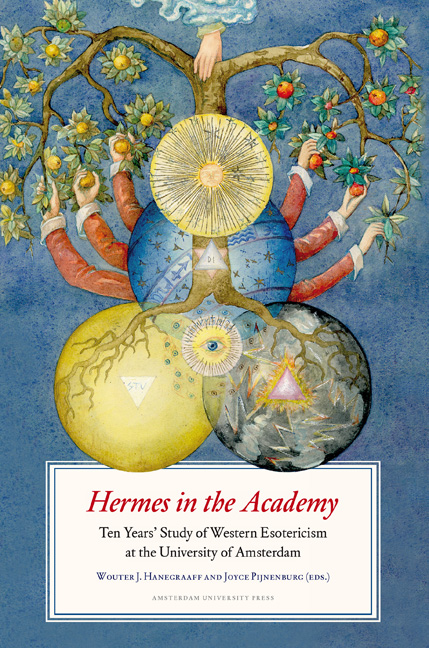Ten Years of Studying and Teaching Western Esotericism
Published online by Cambridge University Press: 20 January 2021
Summary
When I first heard that there were plans for creating a chair devoted to the history of Hermetic philosophy at the University of Amsterdam, I could only pinch my arm very hard, to check whether I was dreaming. This was in the autumn of 1997. Twelve years later, having seen how a dream can become reality in the prosaic context of a modern academic institution – and how that reality, in turn, can allow new generations to pursue their dreams – sometimes I still feel a need to check that I am awake.
During my studies at the Faculty of Letters of the University of Utrecht, in the second half of the 1980s, I had come across a book that I now recognize as a pioneering effort in the study of Western esotericism. Written with infectious enthusiasm and impressive erudition, Will-Erich Peuckert's Pansophie (1956) evoked an exciting intellectual culture that had flourished during the time of the Renaissance, with major representatives such as Marsilio Ficino, Paracelsus and Jacob Bohme, but that seemed to have been almost forgotten by contemporary scholarship. I started asking my professors about these personalities and their ideas, and quickly began to make the typical experience with which all scholars in our field are familiar. The cultural domain discussed by Peuckert seemed to make my teachers quite uncomfortable, and to my repeated requests for information and suggestions, they responded by tossing the embarrassing topic on to another colleague as if it were a hot potato. Nobody seemed willing to touch it, and it did not take me long to decide that if this were the case, then somebody had to do it. My decision to specialize in the domain of what has sometimes been called “rejected knowledge” was the best one I have made in my life.
Eventually I discovered that although good scholarship in this domain was indeed not so easy to find, it did, of course, exist.
- Type
- Chapter
- Information
- Hermes in the Academy , pp. 17 - 30Publisher: Amsterdam University PressPrint publication year: 2009



